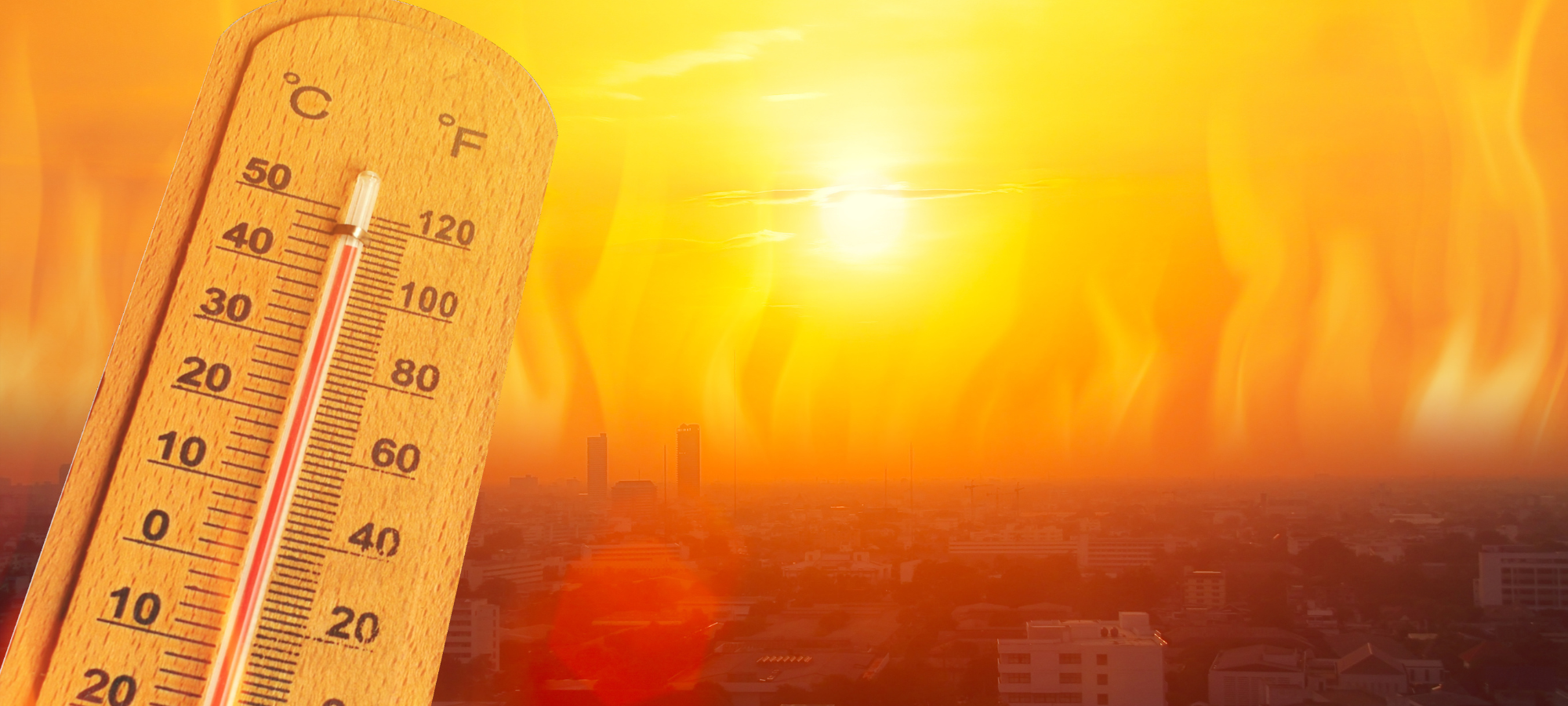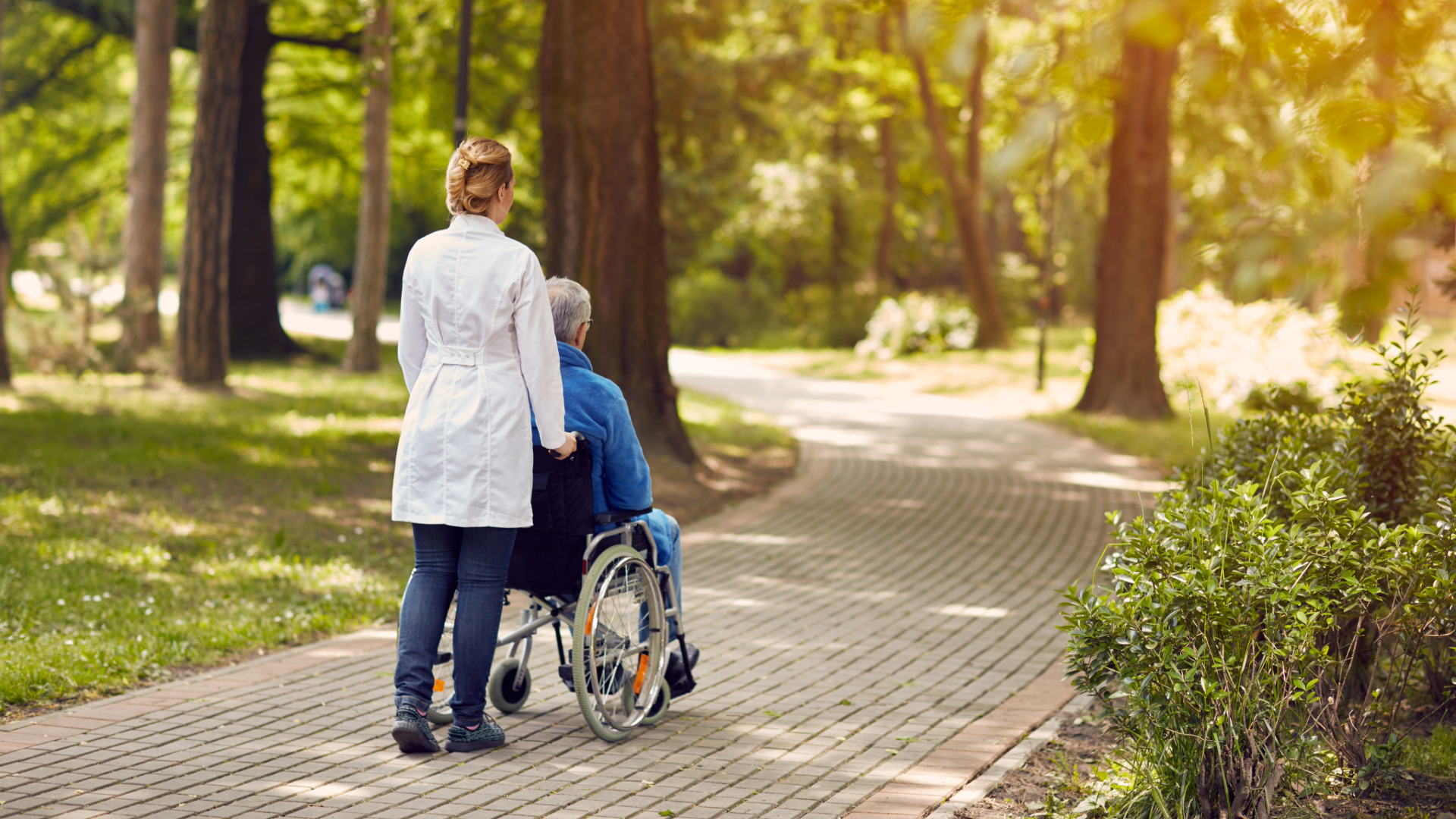With aging, there tends to be a loss of ability to sense body temperature. This could cause someone to miss the signs of their body overheating. Since heat exhaustion and other heat-related illnesses can arise quickly, if possible symptoms aren’t monitored and preventative steps aren’t taken, the consequences can be dire. Consider keeping this guide handy to help evaluate, treat and educate your patients on staying smart to beat the heat.
According to the Environmental Protection Agency (EPA), the Centers for Disease Control (CDC) and the National Oceanic and Atmospheric Administration, more people die each year from excessive heat events than from hurricanes, tornadoes, floods, lightning and earthquakes combined. Everyone is at risk, but older adults are particularly vulnerable.
Heat exhaustion is the body’s response to a significant loss of water and salt. It’s usually caused by excessive sweating, and, without prompt treatment, it can lead to heat stroke - which can be life-threatening. As temperatures continue to rise, it’s important to keep these symptoms and treatments at top-of-mind on behalf of your patients.
Symptoms
According to Mayo Clinic, symptoms of heat exhaustion may start suddenly or progress over time, especially with prolonged periods of exercise and vigorous activity. Possible heat exhaustion symptoms include:
- Cool, moist skin with goose bumps when in the heat
- Heavy sweating
- Faintness
- Dizziness
- Fatigue
- Weak, rapid pulse
- Hypotension upon standing
- Muscle cramps
- Nausea
- Headache
Prevention
Encourage your older adult clients (and their caretakers) to follow these 13 tips to help avoid heat exhaustion:
Indoor tips
- Visit air-conditioned buildings, especially if your home is not air-conditioned.
- Take a cool shower or bath.
- Drink plenty of fluids – many seniors don’t drink enough water because our body's demand for water decreases as we age.
- Keep windows open at home to circulate fresh air (if your home is not air-conditioned).
Outdoor tips
- Keep the inside of cars cool.
- Minimize exposure to the heat by sitting outdoors during cooler parts of the day.
- Wear sunscreen.
General tips
- Wear lightweight, light-colored and loose-fitting clothing to stay cool.
- Avoid strenuous activities, especially during the hottest parts of the day.
- Ask your doctor if any medications can cause an increased risk of heat events.
- Watch for warning symptoms such as dry skin, confusion, hallucinations and aggression.
- Establish a buddy system – where people can check on each other during warm periods each day.
- Always carry water/electrolyte replacement beverages.
Treatment
In most cases, heat exhaustion can be treated by these steps, recommended by Mayo Clinic:
- Resting in a cool place. Getting into an air-conditioned building is best. If that's not an option, try to find a shady spot or sit in front of a fan and suggest the patient rest on their back with their legs raised higher than their heart level.
- Drinking cool fluids. Stick to water or sports drinks. No alcoholic beverages, which can add to dehydration.
- Trying cooling measures. If possible, encourage patients to take a cool shower, soak in a cool bath or put towels soaked in cool water on their skin. If you’re outdoors and not near shelter, soaking in a cool pond or stream can help bring their temperature down.
- Loosening clothing. Patients should remove any unnecessary clothing and make sure their clothes are lightweight and nonbinding.
- Use evaporation cooling techniques. If cold water immersion is not an option, try to lower the patient’s body temperature using an evaporation method. Cool water is misted on the body while warm air is fanned over it. This causes the water to evaporate and cool the skin.
- Provide medications to stop the shivering. If treatments to lower their body temperature make the patient shiver, a doctor may provide a muscle relaxant, such as a benzodiazepine. Shivering increases body temperature, making treatment less effective. Monitor diuretics, especially on hot days, as they will increase output - potentially causing further dehydration.
Most importantly, healthcare professionals should use their training and understanding of their patient’s limitations and medical history to select the best possible care option. For example, seeking medical attention upon any sign of heat exhaustion may be the best option.
And if you decide to use measures like these and your patients don't begin to feel better within one hour, seek prompt medical attention.
It’s a good idea to refresh yourself and your team every summer on the signs, symptoms and treatment of heat-related illnesses and what you can do to best help your patients avoid them.
DISCLAIMER
The information contained in this blog post is intended for educational purposes only and is not intended to replace expert advice in connection with the topics presented. Glatfelter specifically disclaims any liability for any act or omission by any person or entity in connection with the preparation, use or implementation of plans, principles, concepts or information contained in this publication.
Glatfelter does not make any representation or warranty, expressed or implied, with respect to the results obtained by the use, adherence or implementation of the material contained in this publication. The implementation of the plans, principles, concepts or materials contained in this publication is not a guarantee that you will achieve a certain desired result. It is strongly recommended that you consult with a professional advisor, architect or other expert prior to the implementation of plans, principles, concepts or materials contained in this publication.
This blog post may contain the content of third parties and links to third party websites. Third party content and websites are owned and operated by an independent party over which Glatfelter has no control. Glatfelter makes no representation, warranty, or guarantee as to the accuracy, completeness, timeliness or reliability of any third party content. References to third party services, processes, products, or other information does not constitute or imply any endorsement, sponsorship or recommendation by Glatfelter, unless expressly stated otherwise.
Related posts
The challenges that caregivers face are not easy. We compiled some quick tips for managing family interactions in hospice and palliative care settings.
In summer 2024, weather will be unpredictable, but these are the weather events you can expect, depending on location.
There's so much to learn about nursing, but here's 10 fascinating facts as we celebrate National Nurses week.









Submit a Comment